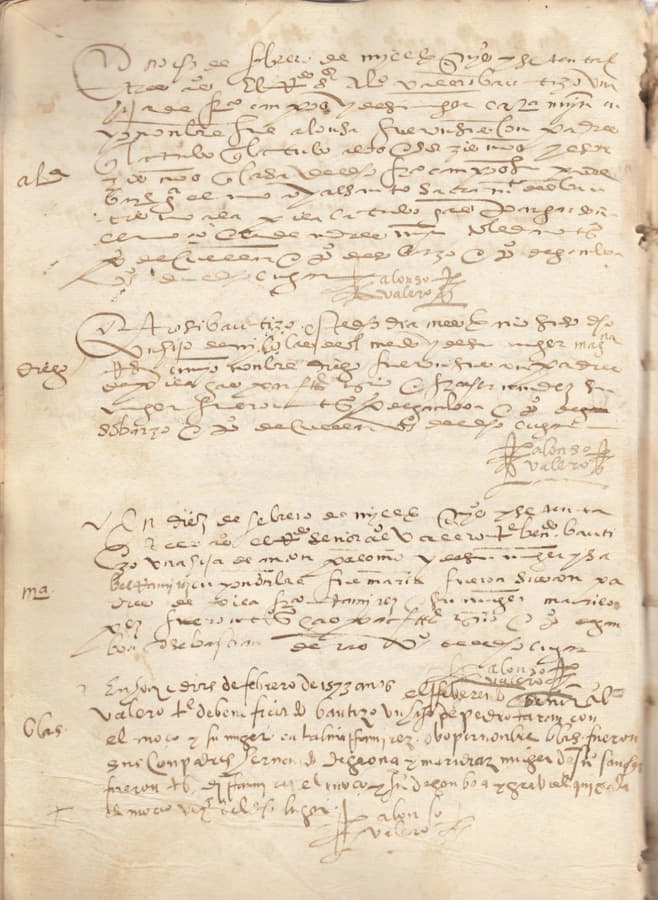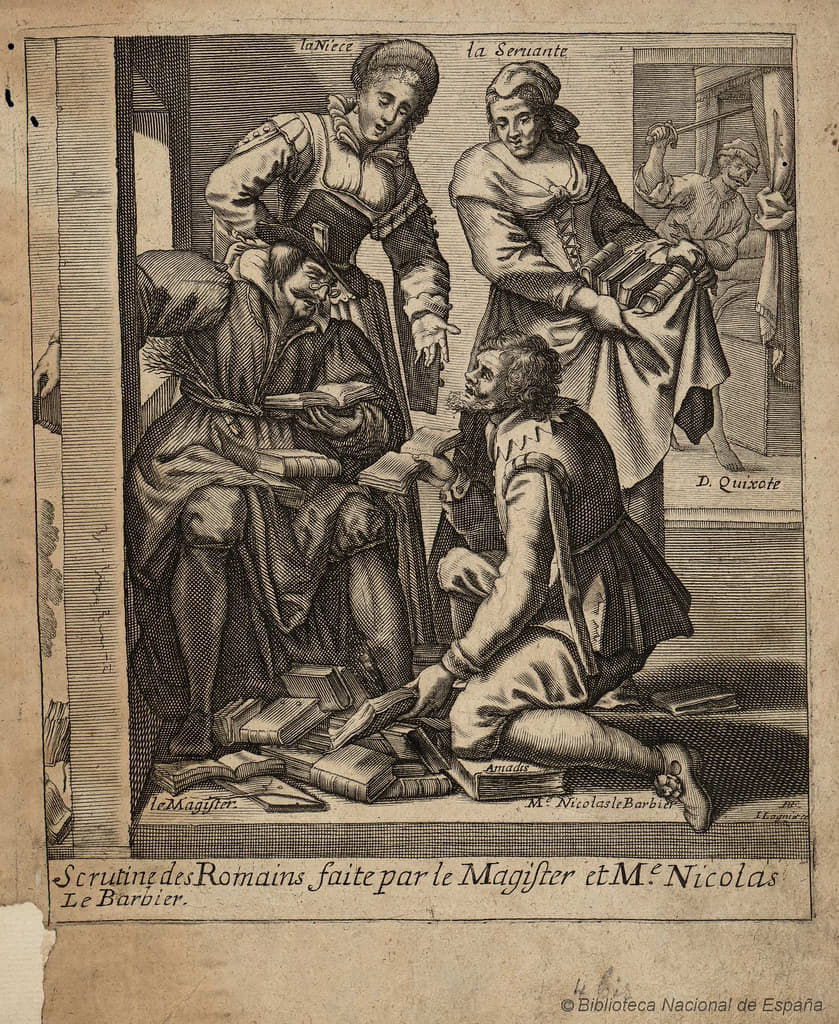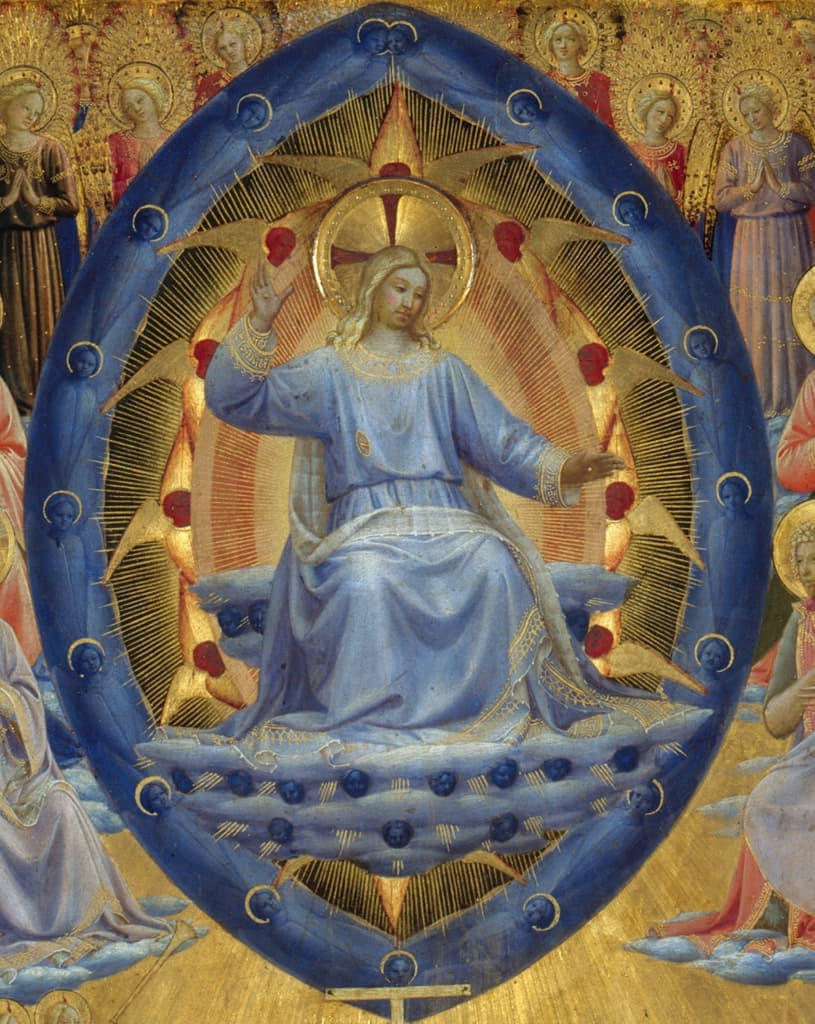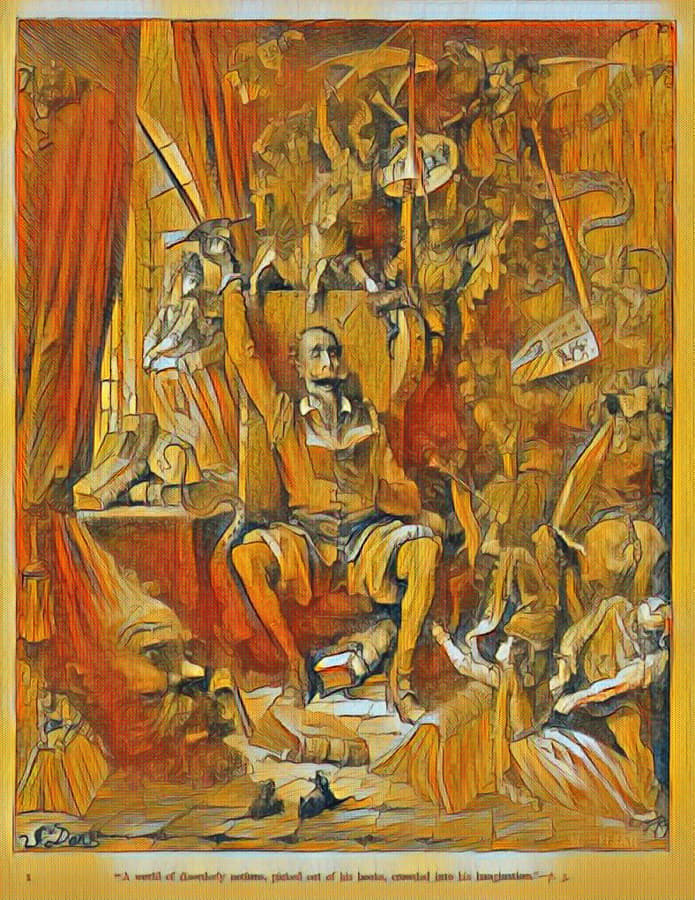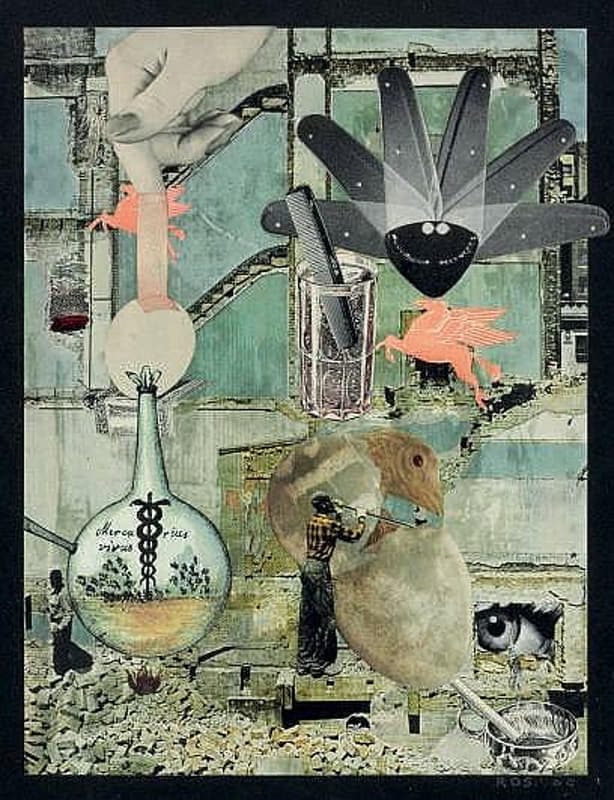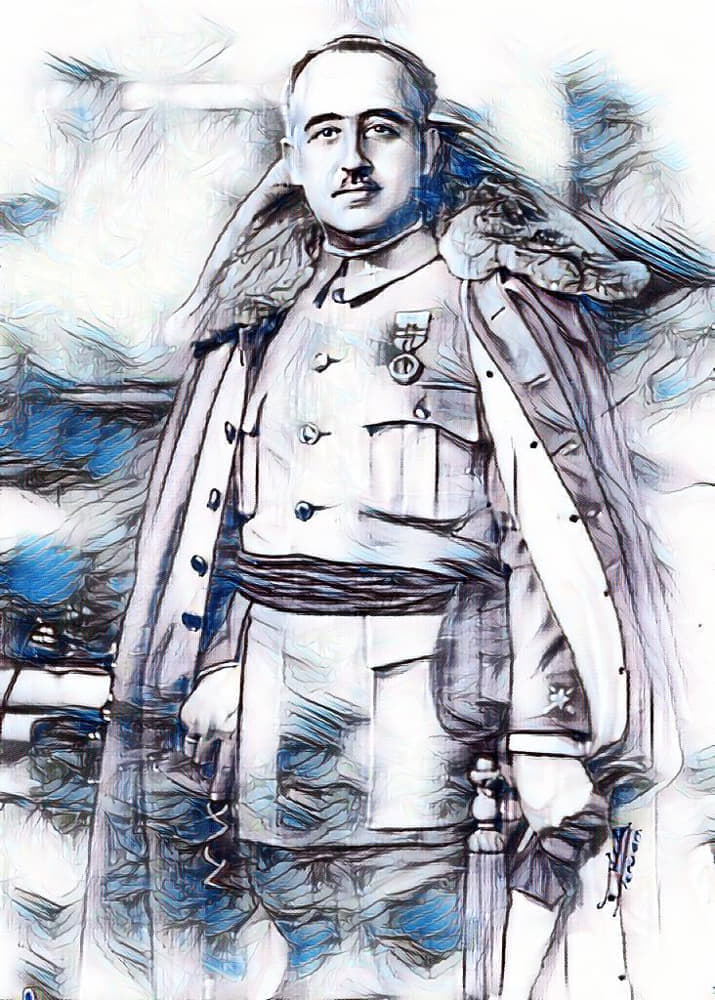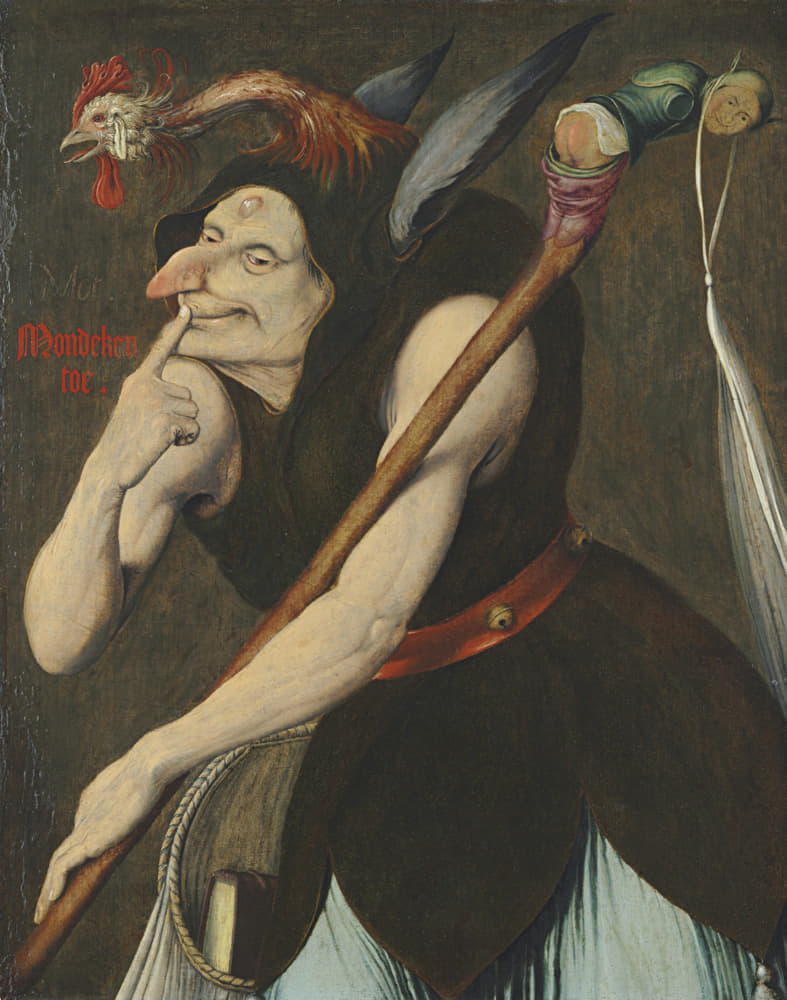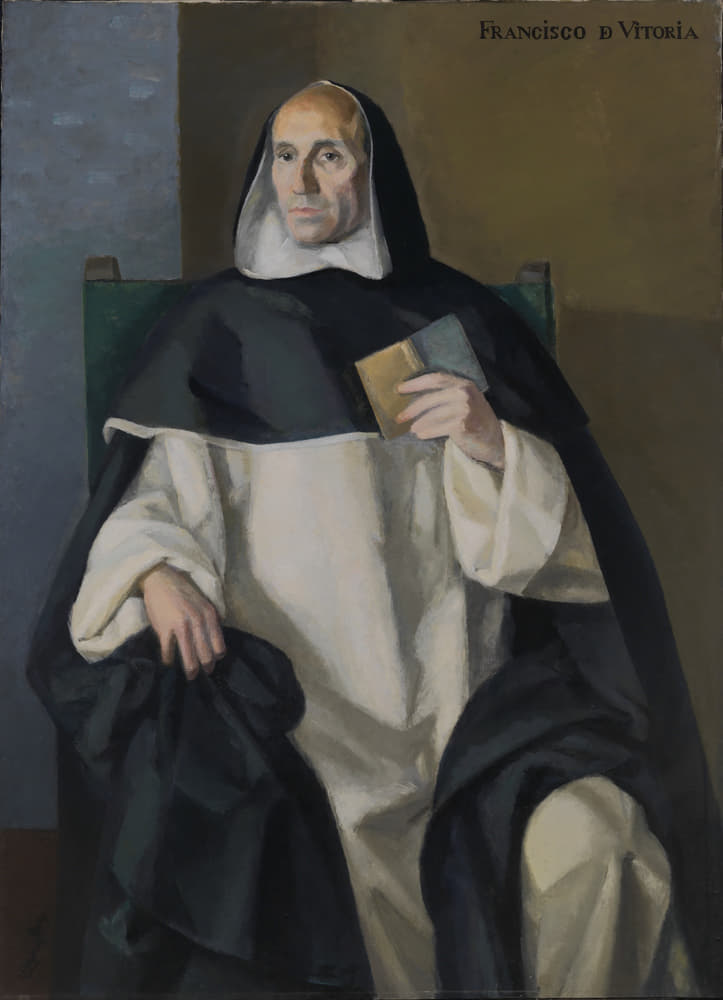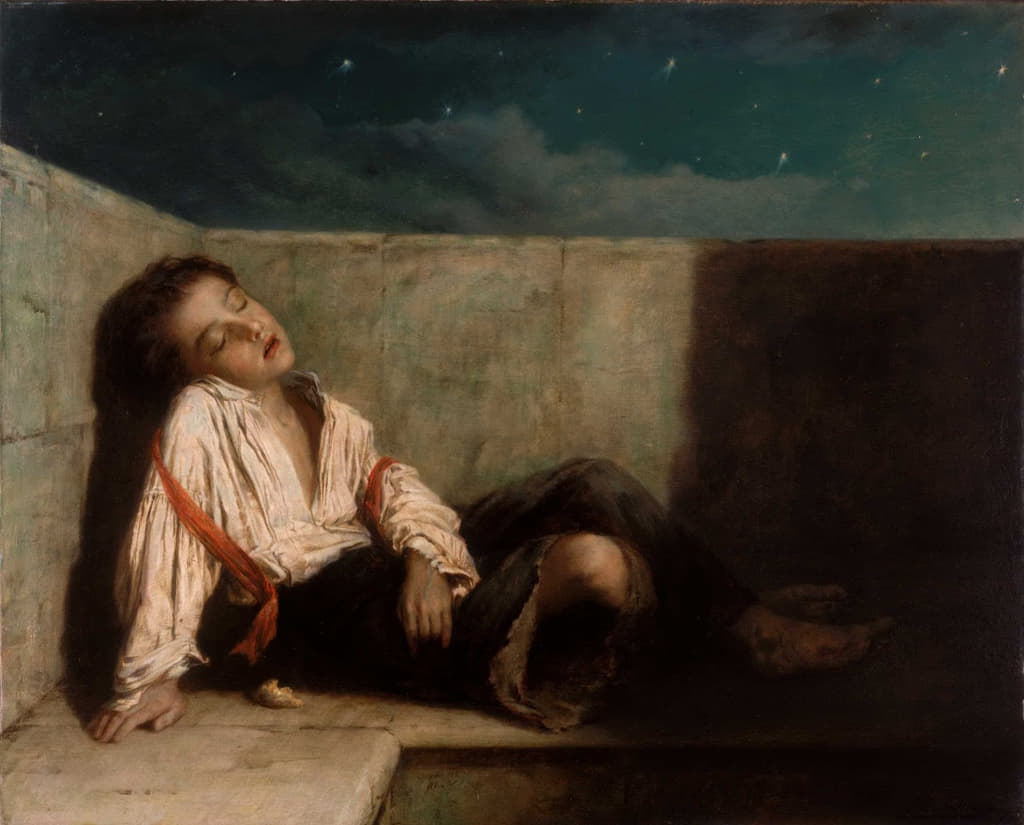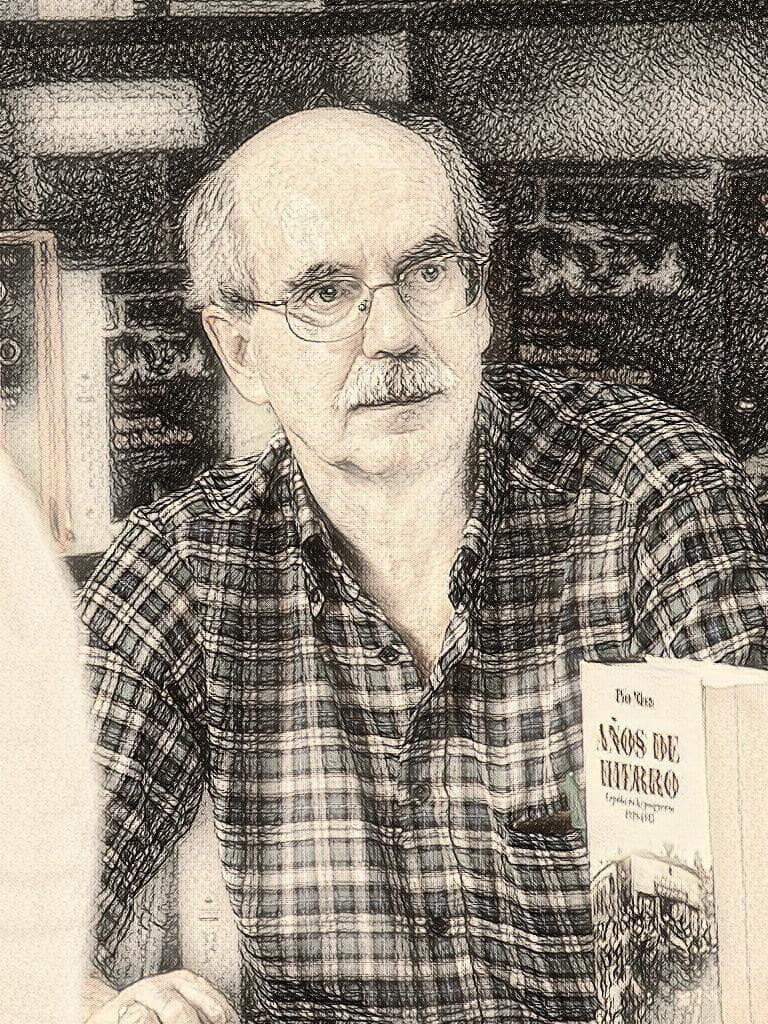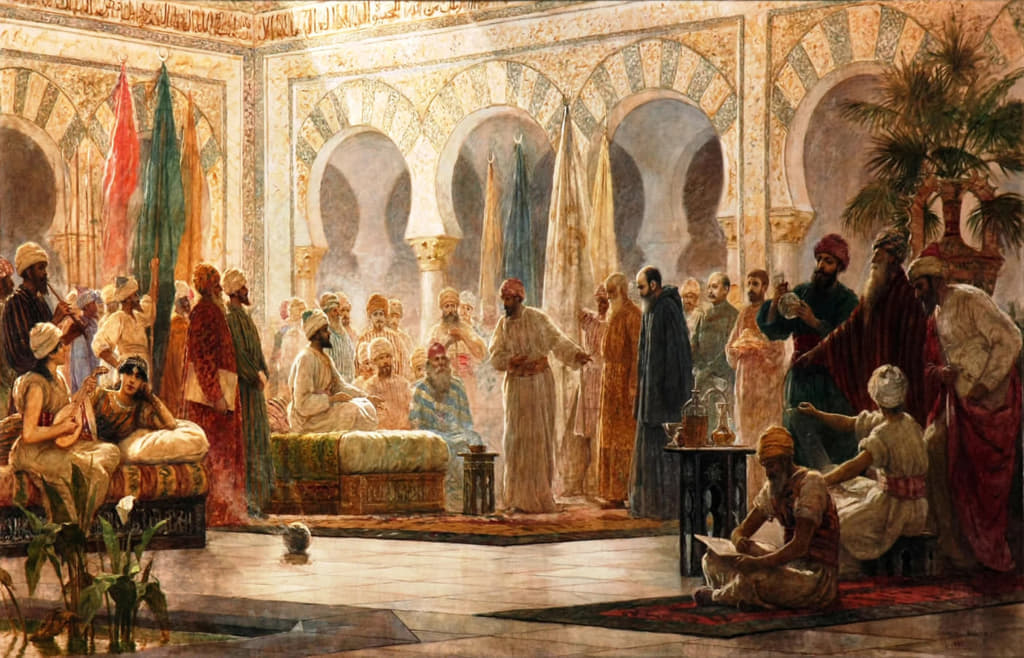History, said Ortega, is amusing, unlike Nature, which, mere repetition of itself, is boring. But historical amusement also includes tragedy. At this moment, apart from the fact that everything is degenerating to begin again, according to the law of anakyklosis described by Polybius, and the games with which the capricious goddess Fortuna entertains Clio, what is amusing now are the idiotic simplifiers, who remind us of the schreckliche Simplifikateure (horrible simplifiers)—Lenin, Trotsky, Stalin, Hitler, Mao, Pol Pot, etc.—whom Jacob Burckhardt saw coming and who “enlived” the 20th century. The new simplifiers, whose destructiveness does not even have any collective purpose, except rhetorically, are legion. They are people who were born stupid, attained the state of stupidity, or stupidity was thrust upon them. As Paul Tabori’s (1908-1974) tell us in his book, The Natural History of Stupidity [published in 1959 as The Natural Science of Stupidity, and then in 1993 as, The Natural History of Stupidity]: “Stupidity is Man’s deadliest weapon, his most devastating epidemic, his costliest luxury.”
Stupidity is also an important historical factor, sometimes the decisive one. But, like boredom and weariness, it has scarcely been studied as a cliopolitical category—perhaps because, as Napoleon is said to have said, surely thinking of his adversaries and enemies, “in politics, stupidity is not a handicap.” The revolution inspired by stupidity has distorted Karl Popper’s dream of an open society. To begin with, after the implosion of the USSR, stupidity confirmed the possibility of the end of history, naively diagnosed by Francis Fukuyama as the triumph of liberal democracy. In reality, it was what is generically called “social democracy,” disguised as liberalism in which reigns the “market of desire” of the “libertarian liberalism” of May 1968, denounced by the Marxist Michel Clouscard. The result is that many people today share the feeling that ill fare the lands of the West. It is already a cliché that the future of a demoralized Europe, given over to carpe diem, is dark and gloomy rather than disturbing. It is enough to bring to mind the moral and spiritual desertification and the plummeting birth rate, instigated by stupid governments, which will marginalize Europe from history.
[See Guillermo Mas Arellano, “Destruir la civilización: tres pensadores franceses” (“Destroying Civilization: Three French Thinkers”). In the press, it is becoming common to find allusions and articles about the stupidity or nonsense of politicians].
The stupid are narcissistic to a greater or lesser degree, and politics attracts narcissists like a honeycomb of rich honey attracts flies. But not enough attention is paid to their influence on politics and, therefore, on history. Karl Marx wrote in The Eighteenth Brumaire and Louis Bonaparte: “Men make their own history, but they do not make it as they please; they do not make it under self-selected circumstances, but under circumstances existing already, given and transmitted from the past. The tradition of all dead generations weighs like a nightmare on the brains of the living. And just as they seem to be occupied with revolutionizing themselves and things, creating something that did not exist before, precisely in such epochs of revolutionary crisis they anxiously conjure up the spirits of the past to their service, borrowing from them names, battle slogans, and costumes in order to present this new scene in world history in time-honored disguise and borrowed language.” In other words, men make history without knowing what they are doing. The result depends on circumstances, on the protagonists and, fifty percent according to Machiavelli, seventy-five percent according to Frederick the Great, on chance. To say that one is on the right side or with the correct course of history is, then, stupidity (from stupidus, “dazed”), a concept that reduces the DRAE [Dictionary of the Royal Academy of the Spanish Language] to “remarkable clumsiness in understanding things.”
The present time is much more revolutionary than that of the Great French and Soviet Revolutions with the decisive interlude of the revolution of the intellectuals of 1848.
[Olavo de Carvalho: “the really decisive power is, in the long run, that of a priestly or intellectual order.” Once the intellectuals—Auguste Comte’s savants—became the ruling class, they began to spread more or less utopian ideas—beliefs, which ended up becoming ideas—beliefs that dissolved the European tradition of politics and led to totalitarianism: secularism, atheism, radical individualism, Freemasonry, nationalism, statism, interventionism, collectivism, socialism, communism, anarchism, racism, nihilism, etc.].
The present time is so abnormal that it has become normal to speak of the beginning of the reign of the Antichrist—the earthly Jerusalem—of the Apocalypse, of the Great Tribulation, or simply of the end of the world. Contributing recently to the spread of these prognoses are the real or supposed pandemic-business of the coronavirus and the scientistic myth of climate change in which even the singular Jesuit Pope Francis believes, “fascinated,” says Chantal Delsol, “by ecologist religion and post-Christian humanitarianism.”
Douglas Murray begins his widely read book, The Madness of Crowds [the Spanish translation of which bears the subtitle, How identity politics drove the world to madness]., with the phrase “we are going through a great crowd derangement.” Some brief annotations, comments and examples on the nature and importance of stupidity may be worthwhile, simply to draw attention to this possible cliopolitical category, which helps to understand, for example, that of misgovernment, both of which are nowadays practically normalized.
Polybius (200-118 B.C.) judiciously warned against attributing to divine intervention, events whose causes can be discovered to explain their origin and end. It is, therefore, pertinent to relate the existing confusion with the fact that societies that consider themselves “liberal” democratic are beginning to be, or are already, ochlocratic plutocracies, spiritually governed by Stupidita, a little known but very active ancient divinity, to whom Jean Paul Richter (1763-1825) dedicated a valuable essay-homage
[The god of stupidity and insanity in Greece was Κοαλεμος (Coalemos in Latin), of whom little data is known and whose etymology is disputed].
Hans Blumenberg pointed out the craving for novelty as a distinctive feature of Modernity and according to Jacques Barzun, “the new is always the best” is its guiding principle. Parodying Schopenhauer, Nietzsche’s mentor, ex novo lux: the critique of customs, usages, the historical past, religious, moral, aesthetic and political traditions by the subjectivist metaphysics of modern rationalism (Heidegger), and the slogan of the French Jacobins who legally proclaimed “1789” the “Year Zero” of the new history of man freed from all the past—prepared the reign of Stupidity. “The vulgar progressivism that considers everything past as essential barbarism” (Ortega).
The cult of their own identity is a defining feature of the narcissism of the stupid. The admirers of themselves (the greatest vice of all is the vice of oneself, said C. S. Lewis—the “identity” politics of fashionable multiculturalism—”all the brains in the world are powerless against whatever stupidity is in fashion” [La Fontaine, 1621-1695])—confuse differences with “diversity.” Combined with the collectivization of idiocy—which makes the most idiotic idiots feel intelligent—it may be the best explanation of what has been called the suicide of Western civilization by auto-narcissism. What Oliver Cromwell said could be applied to progressive politicians—the majority: “A man never goes so far as when he does not know whither he is going.” But, if Richter is to be believed, the triumph of Stupidity could be “the long-sought universal remedy against all maladies”—a search intensified by intellectuals won over by the ideological mode of thought that has been competing with traditional religion since the Great Revolution.
Stupidity is highly contagious. Boileau used to say: “an imbecile always finds another imbecile who admires him.” Hence the mass of optimists—”optimism is the opium of the people” (Milan Kundera)—are prone to think that universal stupidity is the normal state of humanity, and the pessimists, better informed people, maintain that human stupidity is a mathematical constant.
Flaubert, author of the unfinished novel Bouvard and Pécuchet, concerned about the presence of stupid people everywhere, concluded, in the manner of Carl Schmitt, that “stupidity is the enemy“—a fact often overlooked by historians, without realizing that history is also, in a way, Koalemos’ fight against common sense. Which, fortunately, as Unamuno warned, was already the least common of senses in his time.
[Flaubert captured early on the essence of political correctness: they are “imbeciles, he said, those who do not think as you do”].
At present, everyone is intently media-watching, whether with censorship, self-censorship or even without censorship, which reveals, in their eagerness to appear transgressive, that Koalemos vincit. That is to say, they corroborate, in the words of Quevedo, that “all those who seem stupid, are stupid; and, moreover, so are half of those who do not seem so”—as it should be in advanced democracy, of which so much is said without knowing what it actually consists of.
The general cause is, as Lucien Jerphagnon recalled in his important book, La… sottise? Vingt-huit siècles qu’on en parle (Stupidity…? Twenty-eight centuries of talking about it), and the one pointed out by St. Augustine—stupidity is a consequence of Adam’s sin, and since man is a sinner, the stupid are the majority. This raises the dilemma of whether stupidity is democratic or that democracy itself is stupid. But given the truth that democracy is the realm of opinion, it can be inferred, for example, that it is the messianic export, urbi et orbi, from North America of the democracy prophesied by John Dewey as the religion of progress—the greatest revolution of all times, since it entails the universal reign of Koalemos, a reign in which the normal, common sense, is condemned, and what was once considered abnormal is innovative and transgressive and is thus praised as correct.
[“If stupidity did not look so much like progress, talent, hope, or improvement, no one would want to be stupid,” said Robert Musil, in “Über die Dummheit,” “On Stupidity” (1937)].
Those who are not on the right side of history, fortunately less and less, protest because the persecution of the sane, the normal, the usual is enforced, and the abnormal imposed, without understanding that it is what, finally, Koalemos gratias, should be normal.
The greatest danger of stupidity consists in politicis, in that it is not incompatible with being “cunning.” For “the probability that a given person is stupid,” judiciously writes Carlo M. Cipolla, “is independent of any other characteristic of the same person.” The stupid can be intelligent and “there are stupid men who possess vast knowledge,” said Tabori. A very serious problem, if Jean-Baptiste Molière was right, for whom “people are never so close to stupidity as when they think they are wise.” In this case, as “every form of intelligence has its form of stupidity” (Robert Musil), if the intelligent person thinks he is wise, he tends to detach himself from the reality in which he lives and to live in unreality. For example, inventing an ideology or ascribing to one, generally, if possible, democratic, as the socialist one claims to be, since every ideology has a utopian objective. This is what Julien Benda called “the treason of the intellectuals,” the modern clerics, who exchange the religious faith of the priests for faith in the uncertain. Today they usually officiate as organic intellectual priests dedicated to fostering collective stupidity.
[Charles de Gaulle said: “You can be sure that the Americans will commit all the stupid things they can think of, as well as some that are beyond imagination.” This is the case of President Biden and his cohort of cretinous leftists. The Mathematical Association of America has declared mathematics to be racist].
The stupid, said Jerphagnon, completing Flaubert’s observation, are those who ignore their own condition and consider stupid those who say or do something that does not please them, “so they are a very large family.” He recalls Plato’s confession to Simonides in the Protagoras, St. Augustine’s acknowledgment that the absolute majority of men—and women—are imbeciles, fools and idiots, and Descartes’ assertion that “we rarely have occasion to deal with completely reasonable people.” In short, “throughout history there have been people, and not exactly insignificant ones, who have denounced stupidity; it is possible to smell it everywhere and it floats in the atmosphere of all times,” with which Jerphagnon concluded his interesting inquiry.
It is necessary to distinguish, however, the normal stupidity of ordinary life, in which we all do stupid things, from the much more serious stupidity of the elites as such. The first, generally harmless, is like the sauce of life. It is a literary and theatrical theme—comedy as a specific genre—elevated to the rank of art by the cinema with Chaplin, Oliver Hardy and Stan Laurel (“the Fat and the Skinny”), the Marx Brothers, Jerry Lewis, etc. The second, that of the ruling classes, is on the other hand very dangerous; especially when it affects like a plague the strata of politicians and intellectuals. Then it is revolutionary—it operates as a highly contagious and destructive disease, capable of annihilating peoples suffering from stupid governments, especially if they are trapped in the forma mentis of ideology, which justifies and empowers the will-to-power of the stupid, tendentially narcissistic. Ideology is a partial truth that is presented politically as universal (Antonio García-Trevijano), with the utopian pretension of definitively reconciling with itself the human species, a group, even individuals, anxious to change their social position. As Gómez Dávila wrote in a short extract: “Ideas tyrannize those who have few;” and ideology fanatically guides those who achieve power with the support of the mass of fools who believe others who are less foolish. With the not infrequent collaboration of businessmen who take advantage of the stupidity of others. Ortega’s man-mass is the normal individual, sick with stupidity, led by the most astute.
[Richter: “Those who have most favored and nurtured the Stupidity of the people are those who have profited the most”].
The big problem is when the stupid rule, a revolutionary inversion of natural hierarchies. “The fool will be servant to the wise” (Proverbs 11:29). The inversion of the hierarchical order in public life is the reason why collective stupidity is today an expanding phenomenon, described as infantilization by those concerned with the spread and intensity of the phenomenon in everyday life.
John Paul II recognized that “stupidity is also a gift of God, but we must not misuse it.” A frequent motive is vanity, which often deviates or obscures intelligence. Then, the intelligent person aspires to be what he is not and acts stupidly, because “pride is a fairy that satisfies all the desires of the idiot” (Jean Paul Richter), a creature who always wants to be satisfied with himself. And since vanity, as Hobbes observed, is a frequent affliction of the politician, today we can speak of the predominance of the “idiot genus” because of the large number of politicians, required by bureaucratization in the statist governments, supported by the mass of the stupid. Moreover, idiots prefer the company of idiots. Karl Kraus used to say, “the secret of the demagogue consists in making himself as stupid as his audience so that they believe they are as intelligent as he is.” That is why it does not matter to the professionals of politics, political careerists of the demagogy that is presented as democracy, to promote manipulable fools, or to make themselves look like idiots in order to attract fools and increase their entourage with fools; and with clever people who pass themselves off as fools.
In addition, there is what Wilfredo Pareto said: in every political order, there is always a political, cultural and economic elite. And since the idiot is also his own best friend—stupidity with political and cultural power—today the media, is very profitable for economic oligarchies, especially if it is coupled with a lack of scruples and emotional appeals to humanitarianism. Well, humanitarianism justifies, for example, that the Herodian rulers and the innumerable idiots that inhabit the earth consider abortion progressive, the greatest, by far, of the genocides—it is usually already the first cause of mortality in many “advanced” countries—and euthanasia, another even more humanitarian genocide underway, which only benefits businessmen.
[Added to abortion as a contraceptive resource is the “need” to exterminate before birth those that Álex Navajas calls, “the climate killers,” because as the population increases, the damage to Mother Earth increases].
Carl Schmitt used to say about humanitarianism: Wer Menscheit sagt, will betrügen, he who appeals to humanity wants to deceive. The decadence of Europe, victim of the humanitarianism described by Robert Hugh Benson in 1907, in the apocalyptic novel Lord of the World, is often compared to that of the Western Roman Empire.
[It is curious that Pope Francis recommends this book from 1907, critical of Comte’s religion of humanity, a religion of sentiment. For example, the hymn of the Masons (“The Lord that dwells in earth and sea”) combines feelings and emotions that exalt humanitarianism, a secularization or politicization of Christian charity].
Various causes are adduced. Philippe Fabry argues, incorporating the interpretation of Mikhail Rostovtzeff to that of Montesquieu, that the main cause was the loss of freedom. Hanlon’s well-known principle or law—”one should not attribute to wickedness what is almost always the consequence of stupidity”—completes the explanation. But there is no shortage of evil idiots.
[Ricardo Moreno Castillo rightly adds that stupidity is more harmful: “Stupidity is more harmful than evil because it is easier to fight against the second (because it acts with a certain logic), than against the first (which lacks it ). You can talk to an evil person and even convince him that he could be much happier becoming a good person. A stupid person, on the other hand, is invulnerable to reasoning. If we could suppress the evil in the world it would be a little better. But if we could suppress stupidity, the world would be so much better” (Introduction, p.18).].
Historical experience teaches that men become stupid when their civilizations decay. Ortega recalled this precisely with regard to the Roman Empire. But it is doubtful whether it was stupidity, mainly that of the ruling oligarchies converted into decadent castes, that caused freedom to decay; or whether, on the contrary, it was the decadence of freedom that caused the intensification of collective stupidity. Probably both. What is certain is that the decadence and disappearance of cultures and civilizations owes much to stupidity.
It is written in Ecclesiastes (1:15): stultorum infinitus est numerus (as to fools, infinite is the number), a disputed translation of the Vulgate of St. Jerome, which coincides, however, with the phrase of the pagan Cicero in the Epistola ad familiares (9. 22. 4): stultorum plena sunt omnia, “all things are full of fools.” Assertions corroborated by Albert Einstein: “there are two infinite things: the Universe and human imbecility, but I doubt the former.” The intensity of politicization, driven by ideologization, unconscious or conscious promoter of stupidity as an interpreter of faith in Koalemos, proves it at this moment. Since religions are the key to cultures—a word related to cult—and civilizations, it is obvious that idiocy is incompatible with them and it is necessary to destroy them so that the god of stupidity may prevail. The religious founders, knowing what Ecclesiastes, Cicero, other sages and common sense said, wanted to improve the human condition. It is not strange that the psychiatrist, a lay substitute for the confessor, has become the family doctor, as faith in the biblical God migrated to the State and the market, as the American theologian William T. Cavanaugh says.
The politicization—”even the personal is political”—which substitutes religion for politics, affects first and foremost the ruling classes. The dumbing down by “the antiquarians of ideology” (G. Morán) and the maternal humanitarianism of feminist bio-ideologies (women are the most oppressed class according to Marxist-Leninist neo-faith) is beginning to be as evident as the influence of propaganda (no less humanitarianist, and, I might add, merciful—”the banalization of compassion,” says Manuel Alejandro Rodríguez de la Peña—”without ceasing to be destructive”) of the fourth estate, the media in the hands of “loquacious illiterates” (Alberto Buela). “Compassion, in this century, is an ideological weapon,” said Gómez Dávila in one of his famous scholia. A weapon easy to handle even by the stupidest, it is used by rulers and businessmen without the slightest scruple to attract and convince the masses they exploit.
Once religion, which provides security compatible with freedom, has been superseded by politicization, which creates uncertainty, one of the problems of “affluent societies” (J. K. Galbraith) consists, in fact, in the alliance between the political, cultural and economic elites against the people, at the time when The Revolt of the Masses (Ortega) and The Revolt of the Elites (Christopher Lasch) coincide. This alliance explains the influence of the manqué individual, who, as Michael Oakeshott observed, began to gain popularity and followers with the development of state capitalism—the only real “capitalism”—coinciding with the formation of the new estate of professional politicians, when the State, a technical apparatus, the artificial form of the Political, was affirmed. Professionalization that also explains the political rise of the eternal estate of the idiots. Against the first, the Jesuit Pedro de Ribadeneyra cried out in his Tratado de la religión y virtudes que debe tener el príncipe cristiano para gobernar y conservar sus Estados. Contra lo que Nicolás Machiavelo y los políticos de este tiempo enseñan [Treatise on Religion and Virtues that the Christian Prince must Have to Govern and Conserve his Realms, and Against what Niccolò Machiavelli and the Politicians of that Time Taught] (1595). Against the second, much more numerous, Richter testified in the essay in which he poses as the spokesman for Stupidity. “The begetters have played a role in our revolutions,” lamented Chateaubriand, incapable of understanding “the right side of history,” as former US President Obama, Nobel laureate for the extraordinary merit of being black, although there are hundreds of millions of blacks, liked to say.
Stupidity, said Voltaire, is “an extraordinary disease” of narcissists incapable of perceiving their own stupidity. Its peculiarity consists in the fact that, since “it is not the sick person who suffers because it, but others,” it becomes socially more dangerous than the dominion of the wicked, because, as Ortega pointed out, “the wicked sometimes rest; the fool never.” Indeed, the fool, a character unmistakable with the insane, the ignorant, the narrow-minded, the short-sighted, the illiterate or the uneducated in the conventional sense, has no limits.
[The famous wise Count of Keyserling liked to talk with the shepherds of Gredos and Baztán, whom he considered among the most cultured men in the world].
Cicero said the same earlier: “any man can make a mistake; only a stupid person keeps on doing the same thing.” And Einstein confirmed it: “the difference between stupidity and genius is that genius has limits.” A scientific statement by whoever makes it, which excludes normal people guided by common sense, becomes the greatest enemy of stupidity—a reason for the stupid to try to extirpate it, when they achieve power. Hence the fifth rule of Cipolla’s little manual, in agreement with Moreno Castillo: “the stupid person is the most dangerous type of person that exists.” A rule applicable with reservations in private life, which multiplies the danger of fools when they act in public life, in which they are more and more numerous. Perhaps also as a consequence of the combination of humanitarian liberalism with democracy, in which everyone can give his opinion, although his opinion generally reproduces that of stupid people who spread the ideas of others among the multitude of fools by nature.
Indeed, in the democratic context, the stupid easily act as wise men. Heine observed during the German Vormärz: “the wise emit new ideas and the fools expand them.” One explanation may be that, according to the great philosopher Alfred North Whitehead, “almost all new ideas have a certain aspect of stupidity (or foolishness) when they are first produced.” The Portuguese poet Fernando Pessoa saw it differently: “no intelligent idea can gain general acceptance unless some stupidity is mixed with it.” Both views are reconcilable: the English journalist and historian Paul Johnson realized that the spread of moral relativism owes much to the interpretation and dissemination—obviously by fools—of Einstein’s theory of relativity, one of the origins of “post-truth” and the fact that, as the great statesman Felipe Gonzalez said, “in democracy, the truth is what the citizens believe to be true.”
The growing interference of fools in politics is surely the greatest danger to democracy. Almost two centuries ago, Tocqueville grasped that North America did not get along very well with excellence and meritocracy.
[Tocqueville’s fears have been realized. Tocqueville would not come out of his astonishment if he could see that, by one of those unforeseeable twists of history, America – which Hegel saw as an immature nation and Raymond Aron still said was not a nation – is one of the greatest dangers to freedom, while Russia seems to defend it. See Thomas Molnar. Le modèle défiguré: L’Amérique de Tocqueville à Carter (1978); Sheldon S. Wolin, Democracy Incorporated: Managed Democracy and the Specter of Inverted Totalitarianism (2008); R. R. Reno, Return of the Strong Gods: Nationalism, Populism, and the Future of the West (2019); Zbigniew Janowski, Homo Americanus: The Rise of Totalitarian Democracy in America (2021)].
And Nietzsche, a critic of mass democracy, warned in 1872 against superficial, popularizing and reductivist pedagogy. But for almost a century now, “the conspiracy of the imbeciles” (the expression is by Jean-Paul Brighelli) has been dedicated to establishing “the predominance of the cretin.” The continuous pedagogical reforms to “democratize” teaching, especially since 1968, when the homo festivus et stupidus appeared on the scene, encourage collective idiocy.
[The pedagogical fashion consists of promoting the emotional and absurd investigations instead of teaching and training students in the fundamentals].
Bureaucratized Universities—bureaucratization, which may be necessary due to technique, idiotizes the administered when it is excessive—cultivate idiocy, which the new media, “the priesthood of the ruling class” (Zbigniew Janowski), spread like a contagious disease. Radio, cinema, television, internet, cell phones, tablets, telephones and the “entertainment industry” multiply infinitely the influence of the press of Heine’s time. Back then, the large number of illiterates protected people from cultural cretinism. Today, “to promote culture is to crown the mediocre,” said a pessimistic Gómez Dávila, who always kept in mind die schrekliche Simplifikateure that Jacob Burckhardt, one of his two “patron saints” (the other was the skeptical Montaigne), feared so much. “Stupidity is always there, one would realize it if one did not always think of oneself,” said Albert Camus, and the simplifiers fascinate fools with a bit of propaganda.
Even Noam Chomsky recognizes that “propaganda is to democracy what a club is to a totalitarian state.”
[Edward Bernays (1891-1995), Freud’s nephew who settled in the USA, is credited with the invention of the technique of public relations, and the origin of propaganda as a method, namely, marketing, to channel and “manufacture thought.” Bernays successfully organized a campaign to make women equal to men by encouraging them to smoke. See Bernays’ Crystallizing Public Opinion (1923), Propaganda (1928), Public Relations (1945), The Engineering of Consent (1955), and Philippe Darantière, Le techno-nihilisme. Idéologie du changement de civilization].
Pius XII warned in his Christmas radio message of 1944: “Propaganda models all souls after the same pattern, taking away their peculiarities and almost their very life. Even the differences in psychology and attitude between the sexes tend to diminish as much as possible. For all this, the people, which is essentially a great family of diverse but harmonious souls, gathered around what is common to them, disappears. And the mass emerges, with its great empty, collective, enslaved soul.” A mass composed of subjects—at least in Europe there are no other citizens than the politicians who rule in the parties—who live in a more or less virtual unreality, what has been called “metaverse” or metauniverse, the universe beyond. It is happening with the new generations, more and more infantilized. For the new media not only creates what Heimito von Doderer christened die zweite Realität, the second reality inhabited by “the digital idiot,” but it has exponentially increased the possibility of propagating theories and doctrines whose idiocy knows no bounds, while instilling fear of reality as the only truth.
Although violent totalitarian States or Governments still exist (today we must say patriarchal, masculine or sexist—Machiavelli, for example, is a “sexist” in the feminist new-speak) most, if not all the European States and Governments and those of the exsanguinated Christianity, are Sovietizers (Vladimir Bukowsky). Robert Spaemann marked them as totalitarian “liberals.” Rod Dreher calls “soft” totalitarianism, in Live Not by Lies, that which is being imposed in the United States, encouraged by the government of the left-wing cretins presided over by Biden, whose last resounding feat has been to provoke Russia led by Putin, the “satanic enemy” of the progressivism of the stupid.
[One difference between the USA and Europe and other countries is that, there, “the wicked,” led by former President Trump, another anti-progressive “Satan,” are enemies of the stupid].
Self-proclaimed liberal democrats states and governments promote—and finance—stupidity (not always intentionally but for stupidity’s sake) in education, in the media and through the infinite and increasingly maternal Legislation, which conditions behavior by idiotizing the way of acting and even speech, which, among other things, must be automatically emotive and inclusive.
Peter Sloterdijk does not believe that the capacity to think is being lost. What is happening is that life today does not invite us to think: we live in such a hurry that news is rushed through without giving us time to digest it. He is quite right.
[Karl Steinbuch published, in 1966, Die informierte Gesellschaft. Geschichte und Zukunft der Nachrichtentechnik (The Informed Society. History and Future of News Technology), on the need for society to be sufficiently informed. In 1989, he published Die desinformierte Gesellschaft: Für eine zweite Aufklärung (The Disinformed Society: For a Second Enlightenment), warning that the abundance of news was destroying education, whose disaster he predicted, and bewildering public opinion. In 1992, he published Kollektive Dummheit: Streitschrift gegen den Zeitgeist (Collective Stupidity: Polemic against the Zeitgeist)].
But it is a fact that, due in part to technological advances and sentimental humanitarian pedagogy (unfortunately without poetry, “the voice of the ineffable,” as Juan Ramón Jiménez used to say) collective stupidity is becoming widespread, encouraged and guided by governments which, aided and encouraged by the new technologies, are all practically totalitarian today—states in which, as experience shows, there is an abundance of functional illiterates and idiots in positions of command. But the stupid revolutionaries are generous. Bent on the noblest task of equalizing everyone, they impose educational laws to bring the new generations up to their level.
There are still subjects or administrators who think and complain that their governments treat them as imbeciles. But they do not realize how imbecilic are the supportive rulers, who want them to be equal to them. The skeptics who remain (and seem to be more and more in number because of the authoritarian if not tyrannical measures because of the coronavirus and the increase in taxes to defeat “sinister” climate change) fear that, if the rulers are incriminated for their wastefulness, kickbacks, bribes, vote-buying through subsidies, threats, excesses or other corruptions—defense lawyers could allege, as a mitigating or exonerating circumstance, that they are poor fools.
It is worth clarifying that collective stupidity or dumbing down is a very different phenomenon from the “weak thinking” described by Vattimo. It has been frequently observed since Robert Musil wrote that “freedom and reason… have not been in good health since the middle of the 19th century or a little later.” This was the time when, according to Whitehead, began the destruction of common sense, thanks to which stupidity was bearable. The manipulation of political language by Soviet agit-prop contributed effectively to its destruction. One of the first to notice a great regression in the intellectual level was precisely the Soviet dissident Aleksander Zinoviev (1922-2006), reconverted to communism when the USSR imploded, perhaps shocked by the superior stupidity of the supposedly liberal democracies.
[Cf. Michele Federico Sciacca, L’oscuramento dell’intelligenza; Alain Finkielkraut, The Defeat of the Mind; C. Castoriades, La Montée de l’insignifiance (The Rise of Insignificance). André Glucksmann held postmodernism responsible in La Bêtise (Stupidity), and Giancarlo Livraghi, The Power of Stupidity. On the relationship of postmodernism with the turn of socialism towards modal ideologies, typical of cretinocracy, see Stephen R. C. Hicks, Explaining Postmodernism: Skepticism and Socialism from Rousseau to Foucault. The postmodern appears, Ernst Jünger mocked, when a woman puts on a new hat. Fashion, which is frequently a falsification of customs, is also often the cradle of stupidity, for fashionable stupidity is preferred to old-fashioned wisdom].
The propagandistic use of (pseudo)political language as common language, the “inclusive” language—”so a word out of the thought of the heart of man” (Sirach 27:7)—already makes it possible to legally punish the inconvenient or incorrect judgment with the very new and unlawful “hate crimes;” Orwell’s “thought crimes” in 1984. “The corruption of language reveals that of man,” said A. García-Trevijano; and the totalitarian powers want to coercively impose the language of stupidity as a common language, so that its corrupt nature is not noticed.
The rise of revolutionary cretinocracy is not attributable, however, only to the bureaucratization of politics by the ideological mode of thought—whose spirit is totalitarian—typical of the protective States of maternal tendency that treat their subjects as children. “Ideologies render to those who lack ideas the same service as wigs do to bald men” (Ricardo Castillo) and create sectarians and one-sided people who “have only certainties” (Bertrand Russell), while normal intelligent people are full of doubts. Mark Twain advised not to argue with the stupid so as not to be put on their level.
Bureaucracy—”the government of nobody” (H. Arendt)—is consubstantial to the State, a technical apparatus whose ratio, the status ratio, contributes powerfully to impose the quantitative culture of rationalism over the qualitative, aided by the social sciences, which confuse quantity with importance, as if in real politics everything had been decided in advance.
[See, René Guénon, The Reign of Quantity and the Signs of the Times. The ratio status, inherently interventionist, turned into l’ordre publique (public policy) of the Napoleonic État de Droit (rule of law), uses governance, a business technique adopted by the technocracy of the liberal Totalitarian State].
Bureaucracy is the form in which the State is personified by governments eager to “protect people from themselves” as Gunnar Myrdal recommended to his government, perhaps inspired by the biblical saying that the number of fools is infinite, even if they are Swedes, to establish the “Empire of Good” described by Phillipe Muray. Unbelieving, Sloterdijk ironizes: “so many civil servants allow the State not to be seen.”
“The fool is greedy, envious, petty,” said Unamuno. And Voltaire and Ortega failed to add that, if the stupid have power, they easily become, without realizing it, scoundrels. To achieve the noble goal of equalizing everyone in idiocy, the bureaucracy commanded by the stupid is concerned about culture and civilization, which reflect the identity of a people with itself. Hence, its direction is entrusted to direct and indirect nomenklaturas in which swarm more or less fatuous fools, madmen [perhaps because there is no shortage of insane people, Alain de Benoist generalizes and considers the stupid to be insane], organic intellectuals and non-venal intellectuals who still believe, no longer in the goodness of socialism, but in that of communism, promoted in part by the UN, and by “experts,” advisors, specialists, convinced of, or feigning, their moral superiority—careerists and crooks, rogues, knaves, criminals and international financial mafias, who exploit emotions. Fools instinctively corrupt culture to assert themselves in power, as is happening at the moment, when children are perverted, for example, with the Bolshevik argument that “children do not belong to their parents.” [Are they res nullius or state property? If they belong to the State, does the State copulate?]
According to Cipolla’s third rule, “a stupid person is a person who causes harm to another person without at the same time obtaining a benefit for himself, or even obtaining a harm.” And since stupidity is now a contagious pathology so widespread that it can be called a pandemic, we are beginning to talk about the urgency of a movement to survive what can be considered the pathological religion of stupidity. Rémi Brague blames the phenomenon on the failure of the modern project, describable as the planning of the future in imitation of Creation, implicit in the Pelagian “New Christianity” of the Count of Saint-Simon, “the father of planners” (Wilhelm Röpke), creditor of Marx, Lenin, Hitler, Mao and other progressive atheists. The renewing principle of techno-scientific Christianity reads: “Religion must direct society towards the great goal, which consists in obtaining as rapidly as possible an improvement in the lot of the poorest class.” As this religion tends to equalize, this explains its success among the supporters of social justice, despite the fact that there are also degrees of stupidity among equals.
Brague, who suffers from the reactionary disease of preserving common sense, wonders if there is any sense in the existence of human beings in the context of the culture planned by what skeptics call the “international of stupidity,” very well represented by the virtuous tyranny of the stupid “counterculture” of woke bio-ideology. The progressivism of the fools who exploit the clever, which politically functions as the Maoist wing of the “robolution,” as they say in Cuba. Robolutionism that aspires to destroy culture—the key is the “sexual revolution”—by imposing its particular nihilistic, rather than Marxist, conception of morality and culture. Thomas Sowell published in 1999 the very current Barbarians inside the Gates.
Morality, the ethos, depends on the religious beliefs that concretize and fix, in a certain way, the customs and uses, that is to say, the Law, the aesthetics, etc. But the invading morality of our days is not the same as the one we knew, warns Alain de Benoist in Les Démons Du Bien (The Demons of the Good). From the new moral order to gender ideology.
It is possible to synthesize the new morality of the new culture imposed by the stupid ungovernments in that of the aforementioned woke fashion. Spread from California as a “counter-sexuality” to free the human being from sexuality (we must be idiots, agree the reactionaries and libertines), replacing it with other pleasures, such as the love of trees and plants. The devaluation of the body thrives in the environment of the “age of digital dementia,” observes Juan Manuel de Prada.
[The idea of contrasexuality, which already has many followers in the world of idiots, seems to have been suggested by Michel Foucault, who was homosexual].
The new morality of the imbeciles is a mutation of the “anti-fascist” puritanism of the pathological political correctness prevailing in the immature “Imperial Republic” (R. Aron) to which one could apply Dostoyevsky’s phrase “tolerance will reach such a level that intelligent people will be forbidden to think in order not to offend the imbeciles.”
Saul David Alinsky, Tolstoy according to Thomas Mann and other influences adapted Marxism-Leninism to the United States, which is today the champion of “cultural Marxism,” Neo-Marxism that has little of Marx. Marx, who was not an idiot, said he was not a Marxist (je ne suis pas marxiste); and to be a Marxist today is a symptom of incurable idiocy. “The poor,” recognizes the French Marxist Thomas Piketty, “no longer vote for the left,” which is usually the preferred choice of idiots fascinated by the myth of social justice that legitimizes the robolutionaries. But the American mercantile spirit, just as it once led democratic anti-Bolshevism, now exports profitable pathological nonsense, also democratic, such as equating the foolish with the clever through Calvinist political correctness, and revives supposedly Marxist movements such as Black Lives Matter, but in the Nazi version, which substitutes class for race. An amusing trick of Fortuna with the permission of Clio, so that Hitler retrospectively defeats Stalin and the communists clinging to the dogma of the class struggle.
Racist identity movements are subsidized—as before in the USSR of the class struggle—by big businessmen, financiers and multinationals, generally from the US, attracted by the profitable, fashionable stupidity (secular and political ideologies and religions are today fashions) of the “woke culture,” which cultivates the ego of idiots by increasing their self-esteem, and by “cancel culture” of the hyper-individualism of “woke capitalism”—another way to ruin the hated middle classes to control the economy and establish the messianic New World Order of the rich. For, as Cavanaugh says, “the ‘one world’ ideology only really benefits those who own capital, which can move freely across borders.” The stupidity of the fashionable counterculture can be very profitable. On the occasion of the coronavirus pandemic—skeptics call it, Plandemic—there is talk of a political-media-pharmaceutical conspiracy to make multi-million dollar deals by taking advantage of global stolidity.
[The New World Order of globalism seems like a whim of greedy, conceited, stupid or bored billionaires—four things not incompatible—mainly North Americans, grouped around or led by the Zionist George Soros. One of his dangerous diversions is the harassment of Putin, a supporter of the traditional order].
It is worth commenting on the case of Spain, before concluding these notes. It is an unbeatable example of the first fundamental law of human stupidity enunciated by Carlo Cipolla: “each one of us always and inevitably underestimates the number of stupid individuals circulating in the world.” Ungoverned by the successive governments of the Monarchy of Parties, increasingly stupid, Spain constitutes an excellent example of the capacity of political stupidity to move mountains.
[“When the dictatorship disappeared in Spain due to the death of its incumbent, the different species of fools became evident,” writes Moreno. As the stupid are not indifferent to money, encouraged by Mr. Solchaga, minister of Mr. Felipe Gonzalez, a lawyer practicing as a statesman, they began to throw cash around to control the economy and get rich].
Indeed, the Kingdom of Koalemos’ Stupidity managed to establish itself in Spain perhaps more solidly than in other countries, taking advantage of the third reinstatement of the Bourbon Dynasty, by skillfully using the Preamble of the 1978 Carta Otorgada (Charter of Grant), certainly not the Constitution, since, prudently, political freedom was not returned to the people, and replaced by the right to vote ritually for the parties. Renan said that human stupidity is the only thing that gives an idea of infinity. And the Preamble suggests, precisely as a guideline, to establish an “advanced” democracy in order to progress infinitely.
[Reinstatement is not the same as restoration. The first modern Reinstatement was that of Fernando VII, the second that of Alfonso XII and the third that of Juan Carlos. In fact, there was a fourth fleeting Reinstatement, that of Amadeo de Saboya, which implied a change of dynasty. Some believe that the awarding of the Order of Charles III to the podemite Pablo Iglesias and other politicians loyal to Sanchismo by Felipe VI, has dealt the coup de grace to the Crown].
Influential monarchists foolishly recommended the convenience of a “pass to the left”—for which the naive and the foolish instinctively voted—in order to consolidate the Monarchy. [For the third time in less than 175 years and, in fact, at the expense of the Zeitgeist, republican and democratic].
In fact, an oligarchic consensus was instituted, like the social-democratic one existing in Europe, with a modernizing left wing around the Socialist Party, undoubtedly the one preferred by the King, “engine of change,” which included resuscitated separatists and communists, and a contemporizing right wing, of the “center”—judging by the facts, a branch of the socialist party to fix the economic flaws and control the dissenters. The Monarchy of Parties chopped up the Nation in the Charter of Grant according to the principle divide et impera, the “modernization” fostered collective stupidity and reduced politics to a razzle-dazzle between the consensual parties, in fact, a uni-party. Finally, the most idiotic people of the Kingdom have come to power, who surpass in totality the undeveloped stupidity of Dr. Zapatero and his entourage—the incapable Dr. Sanchez and his stupid females and stupid males.
[See, Y. Couceiro, “La superioridad moral de los necios,” La tribuna del pais vasco (13. IX. 2018). The moral superiority of the socialist religion lies in the fact that it conceives politics as a civil war to definitively redeem humanity—a bloodless war, by means of legal revolution in pacifist socialisms, or a bloody war, as necessary, in its most radical varieties, the communist and the anarchist, also with different variants. Mr. Zapatero resumed the Spanish Civil War by inventing the law of Historical Memory and other legislation. Dr. Sanchez aspires to win this civil war definitively, without knowing how far he is willing to go. The precedent that opened the way was the politicization of the judiciary by Mr. Gonzalez, Charlemagne Prize winner in 1985, deservedly praised by Hispanic and many non-Hispanic idiots].
The problem of Spain, which began in 1711 with the Bourbon establishment and worsened since the Spanish War of Independence (the Peninsular War), consists in the fact that, as the stupid men and women in power only know how to play at destroying, in the first place, culture and, with it, the State that supports them, the Nation is finally in a position of religious, moral, aesthetic, political, social, economic, sexual, demographic crisis. And as a Nation about to be extinguished.
[Thanks to the power of the sacralized State—and the complacent failure of the Church—they can declare a sin against Stupidity a crime in civil terms for whatever they can think of. For example, hate crimes or opposition to abortion].
The current misgovernment is “100% integrated by a cast of intellectually disabled people” (F. Jiménez Losantos dixit), practically all of them confessed republicans in a State that is formally monarchic. In order to celebrate them as they deserve in the elephantine, corrupt and absurd State of the Autonomous Communities, new ministries, general directorates, institutions, etc. have been invented. The final objective seems to be to restore Hispanic-American unity by integrating into the 21st century socialism bloc, nostalgic of the much-missed Soviet Union, and as a victim of satanic capitalism, apparently an enemy of Koalemos.
[Cf. Royal Decree 1150/2021 of December 28 (B.O.E. 31. XII. 2021) by which the Sanchez government authorizes itself—just like the famous Ermächtigung Gesetz of March 24, 1933, which granted Hitler full powers—to dictate the measures it deems appropriate to guarantee National Security].
The citizens suppressed for more security by the socialist party’s decree of a civil war nature, like all socialisms, the definitive death of Montesquieu and The Spirit of the Laws [since the division of powers is fictitious, Montesquieu’s fundamental rule is also violated, as in all liberal totalitarianisms: “The tax on goods is the tax of freedom. The tax on persons is the tax of servitude.” A tax against the family, one of the limits that Bodin—the theoretician—placed on state sovereignty, and concentrated in the Marxist social-democratic tax on income]—the objective of the successive monarchical governments seems to be, at least from a certain moment, the Kulturkampf necessary to put the Nation at the forefront of the age, led by progressive ideologies, such as bio-ideologies, enemies of the antiquity of common sense and the ratio status. The main ones are: the misandric or gender one, which, stricto sensu, is limited to defending the legitimate human right of women to be idiots, even if Putin says it is “a perfect phantasmagoria,” and in a broader sense defends, for example, legally regulating the menstrual cycle; the ecologist, defender of the Earth against human perversity that chokes it with CO2-impregnated fumes; the hygienist, health or sanitary (greatly strengthened by the support of the churches—vaccination is “an act of love,” they say in the Vatican) favoring dictatorship (assuming vaccination is necessary) to tyranny (if it is unnecessary) to combat the coronavirus flu.
[Cardinal Jean-Claude Hollerich, Archbishop of Luxembourg and President of the Commission of the Bishops’ Conferences of the European Community (COMECE) has asked for a Covid passport to be required for access to religious services. Where is the Church “on the move” headed? National Socialism invented the “public health policy”—the function of the WHO—which suppresses the natural right or freedom of the individual to decide about his body and the way to heal himself].
These three ideologies are mothers of the LGTB and all the other letters, of the “counter-sexualist”—there is a ministry in charge of an energetic sexual commissar, who sings the truths to the dawn star—the animalist—there is a general direction for everything related to animals (it is not clear if it includes or excludes “politicians,” perhaps because the director has not heard of Aristotle), “ecosexualism” (love to/and with trees and plants), climate change (a branch of ecologism)—the fight against fumes including cow flatus, as well as Pachamamalogy, which enjoys a certain appreciation in ecclesiastical environments, etc. They have the undeniable merit of creating numerous bureaucratic jobs that remedy structural unemployment, which remains fixed as the highest in Europe (at this moment double the European average) since the “transition” began.
Everything points to making Spain the universal example of how collective stupidity can triumph, undoubtedly, the ideal way to advance democracy in order to establish die wahre Demokratie, the true democracy—something like the Kingdom of God in the land of the Puritans of the Fifth Monarchy—dreamt of by Karl Marx as the goal of all socialisms, the desire-mandate to which the Law of the [anti]historical Memory, popularly known as the “Law of the Hysterical Revenge,” points to—the Law that the socialist misgovernment of Dr. Sanchez (of course, a democrat, since the democracy of the stupid can only be socialist or communist) calls with more precision of “Democratic Memory.” Typical laws, with which, as Richter says, “the idiot forbids reason to go beyond memory,” in order to channel peacefully in the correct march of history towards universal stupidity, those who are not yet idiots as they should be and the new generations—if there are any, given the fall in the birth rate, encouraged, with the help of propaganda, by the high taxes that punish families so that they become idiotic and do not procreate.
The nature of the political consensus among the oligarchies is obviously very different from that of Cicero’s consensus omnium, the social consensus determined by the ethos that unifies the peoples. It has ensured that, even if the Nation is not totally idiotized, it is at least in the hands of so many fools, childish people, even for their age, as it has never been before. Without lacking the resentful, delinquent, wicked and everlasting careerists, who always come to the honeycomb of rich honey that are Budgets. O tempora, o mores! The time of stupid apprentices of the customs of Ali Baba and his gang, in “a country,” laments a reactionary journalist, “inert, anesthetized, stupefied, dumbfounded and something like a fool.”
The politics of the transition (“transaction” Jesús Fueyo specified) to the Monarchy in which the Church “became mute,” as Tocqueville said of the French in The Ancien Régime and the Revolution, is, for the reactionaries entrenched in common sense, a mess characterized by the disputes between the traditionally anti-national or anti-Hispanic left—converted, again Koalemos gratias, to Latin Americanism, an expression more stupid and, therefore, more correct than Hispano-Americanism—and the social-democratic left that acts as a centrist “right.” Democracy—”the sovereignty of a people over its destiny” (J. Fueyo)—identified with outdated anti-Francoism, awaits its turn. In the meantime, democracy, Yeah!
The secret of the consensus between the left and the fetish of the center is that, as Nicolás Gómez Dávila (1913-1994) perceived, the right and left “have signed against the reactionary [in the sense of the one who reacts] a secret pact of perpetual aggression.” Consensual Hispanics do, in fact, reasonably brand people, groups or parties that are not in tune—those that do not accept, for example, the decomposition of the oldest nation in Europe, or oppose the culture of death—as being extreme right-wing. This is a very logical curse-argument, since the “right” is the right wing of the oligarchic consensus. They are also labeled as Francoists or “faças.” The apothegm, says Amando de Miguel, of historical fascism, “well, there is no other,” “everything within the State; nothing outside the State.” An apothegm from which the anti-politics of the misgovernment (which perhaps borders on criminality, as long as the penal code is not duly modified to adjust it to the ethos of the kingdom of Koalemos) of the rulers, acolytes and plugged-in members of the PSOE Sanchista, standard-bearer of Stupidity, benefits from.
“If there are no completely intelligent men, there are completely stupid ones,” writes Moreno Castillo. Most of the completely stupid have integrated into the new socialism—socialisms attract fools—and the reactionaries, who are not even stupid, since they live in a world apart—perhaps they do not even vote—say that politics has turned Spain into a dunghill. Some scornfully equate the progressive Kingdom of Spain to the solidly established Kingdom of Peronia, laus Koalemos, in Argentina, from where it radiates imperially to the whole world, together with its Venezuelan partner and the Cuban luminary.
Having practically finalized these flash-notes, the leadership of the right wing of the socialist party, led by characters so infantile and stupid that they have committed political suicide, imploded. In principle, it was not a mere incident in the race to advanced democracy. As Dr. Sanchez also imploded the socialist party, not to improve it, which is certainly impossible, but to re-found it as PSOE and Co. [Probably following Peter Drucker’s advice when a business enterprise is going badly, Sanchez has a doctorate in economics]—the disappearance of the monopoly of consensus by the two original dynastic parties leaves the Monarchy of Parties out in the open. The historian Pedro González Cuevas writes in his recent book: “Felipe VI and his descendants have the future against them. And the fact is that, unlike his father, they have nothing to offer either to the left or to the nationalists.” The reaction of the subjects to the crisis of the self-styled popular party, which for many has become unpopular, reveals a certain weariness with the concentration of stupid people in the political class. However, judging by the symptoms, the popular party will continue to be the unpopular coryphaeus of the socialist party and its associates.
Finally, everything is unknown in the struggle between stupidity and common sense. Will neuroscience and the fashionable artificial intelligence intensify the permanent revolution that is leading the West to dumbness and servitude, and will they obtain the universal remedy so that everybody will definitely be an incurable idiot? The traditional magister vitae, history, would cease to be a work of art (Ranke); the new history would finally be the story of the vicissitudes of Stupidity and those still capable of thinking, residing in the paradises of the stupid, would have to console themselves by imagining, like Blaise Pascal, the joy of living in an intelligent hell.
[With corrections to the version published in Razón española, no. 232 (July-August 2022), and with thanks to Arnaud Imatz].
Dalmacio Negro Pavón (Madrid, 1931) has been professor of History of Ideas and Political Forms in the Faculty of Political Science and Sociology at the Complutense University of Madrid and is currently professor emeritus of Political Science at the CEU San Pablo University. He is also a full member of Real Academia de Ciencias Morales y Políticas (the Royal Academy of Moral and Political Sciences). He has translated and edited several classic works of German, English and French political thought. His many books include El fin de la normalidad y otros ensayos (The End of Normality and Other Essays), La ley de hierro de la oligarquía (The Iron Law of Oligarchy), Lo que Europa debe al Cristianismo (What Europe Owes to Christianity), Il Dio Mortale. Il Mito dello Stato tra Crisi Europea e Crisi delle Politica (The Mortal God: The Myth of the State amidst the European Crisis and Crisis of Politics), and La tradición de la libertad (The Tradition of Liberty).
Featured: “An Allegory of Folly,” by Quinten Massys; painted ca. early 16th century.
